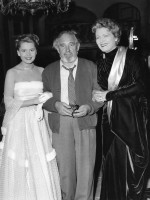Willy Schmidt-Gentner is a Actor, Director, Sound and Compositor Allemand born on 6 april 1894 at Neustadt am Rennsteig (German)

Willy Schmidt-Gentner (né le 6 avril 1894 à Neustadt am Rennsteig , mort le 12 février 1964 à Vienne) est un compositeur de musique de film. Son œuvre est très prolifique et participe à de nombreux films classiques des cinémas allemand et autrichien.
Lors de l'avènement du cinéma parlant, les commandes se multiplient auprès de lui, il compose parfois jusqu'à dix musiques de film par an. Il préfère les comédies légères, des romances musicales et va parfois vers le drame avec un arrière-plan politique, voire les films de propagande (Wien 1910 (1943)), ou le film historique (Spionage (1955)).
Lors de l'arrivée au pouvoir des nazis, il devient membre du NSDAP en mai 1933 puis part en 1934. En 1933, il s'installe à Vienne où le studio Mondial Film fait de lui un réalisateur : Die Pompadour (1935), Der Weg des Herzens (1936). Pour la compagnie Sascha-Film, il compose les musiques de grands films viennois : Mascarade (1934), Hohe Schule (1934). Après l'Anschluss, il accepte la production nazie, autant des comédies que des films de propagande : Heimkehr (1941), Das Herz muß schweigen (1944). Il fait la connaissance de réalisateurs pour lesquels il continuera d'écrire plus tard, Willi Forst et Gustav Ucicky : Le Maître de poste (1940), Opérette (1941), Sang viennois (1942).
Après la guerre, il compose toujours autant. Il s'arrête en 1955. Willy Schmidt-Gentner aura composé pour plus de 200 films.
Source : Wikidata
Willy Schmidt-Gentner

- Infos
- Photos
- Best films
- Family
- Characters
- Awards
Nationality German
Birth 6 april 1894 at Neustadt am Rennsteig (German)
Death 12 february 1964 (at 69 years) at Vienna (Austria)
Birth 6 april 1894 at Neustadt am Rennsteig (German)
Death 12 february 1964 (at 69 years) at Vienna (Austria)
Willy Schmidt-Gentner (né le 6 avril 1894 à Neustadt am Rennsteig , mort le 12 février 1964 à Vienne) est un compositeur de musique de film. Son œuvre est très prolifique et participe à de nombreux films classiques des cinémas allemand et autrichien.
Biography
Enfant, Willy Schmidt-Gentner apprend le violon et la composition auprès de Max Reger. Après la Première Guerre Mondiale, il travaille comme fonctionnaire chargé de vérifier la fiscalité auprès des propriétaires de salles de cinéma. L'un d'eux lui propose un emploi de chef d'orchestre. Son intérêt pour la musique de film s'accroît et il signe sa première composition en 1922 pour un film muet. Il joue aussi du piano lors de séances de théâtre. Il obtient vite des succès : La Mandragore (1928), L'Enfer blanc du Piz Palü (1929), Hokuspokus (1930).Lors de l'avènement du cinéma parlant, les commandes se multiplient auprès de lui, il compose parfois jusqu'à dix musiques de film par an. Il préfère les comédies légères, des romances musicales et va parfois vers le drame avec un arrière-plan politique, voire les films de propagande (Wien 1910 (1943)), ou le film historique (Spionage (1955)).
Lors de l'arrivée au pouvoir des nazis, il devient membre du NSDAP en mai 1933 puis part en 1934. En 1933, il s'installe à Vienne où le studio Mondial Film fait de lui un réalisateur : Die Pompadour (1935), Der Weg des Herzens (1936). Pour la compagnie Sascha-Film, il compose les musiques de grands films viennois : Mascarade (1934), Hohe Schule (1934). Après l'Anschluss, il accepte la production nazie, autant des comédies que des films de propagande : Heimkehr (1941), Das Herz muß schweigen (1944). Il fait la connaissance de réalisateurs pour lesquels il continuera d'écrire plus tard, Willi Forst et Gustav Ucicky : Le Maître de poste (1940), Opérette (1941), Sang viennois (1942).
Après la guerre, il compose toujours autant. Il s'arrête en 1955. Willy Schmidt-Gentner aura composé pour plus de 200 films.
Best films
Usually with
Filmography of Willy Schmidt-Gentner (79 films)
Sound
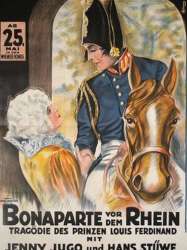
Prinz Louis Ferdinand (1927)
Directed by Hans Behrendt
Themes Political films, Napoleonic Wars films, French Revolution films, Films about royalty
Actors Hans Stüwe, Jenny Jugo, Paul Bildt, Arthur Kraußneck, Eduard von Winterstein, Heinrich Schroth

The Vice of Humanity (1927)
Genres Drama
Actors Asta Nielsen, Werner Krauss, Alfred Abel, Charles Willy Kayser, Elizza La Porta, Trude Hesterberg
Roles Sound
Rating24%






Dancing Vienna (1927)
Directed by Friedrich Zelnik
Genres Comedy, Romance
Actors Lya Mara, Ben Lyon, Alfred Abel, Eugen Burg, Albert Paulig, Julius Falkenstein
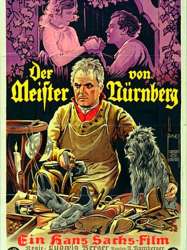
The Master of Nuremberg (1927)
Directed by Ludwig Berger, Ludwig Berger
Genres Drama
Actors Max Gülstorff, Gustav Fröhlich, Julius Falkenstein, Veit Harlan, Maria Matray, Elsa Wagner

The Trousers (1927)
Directed by Hans Behrendt
Genres Comedy
Themes Films based on plays
Actors Werner Krauss, Rudolf Forster, Jenny Jugo, Veit Harlan, Olga Limburg
Rating58%





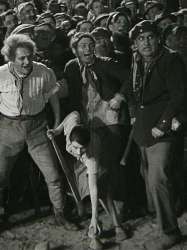
The Weavers (1927)
, 1h33Directed by Friedrich Zelnik
Origin German
Genres Drama
Themes Théâtre, Films about the labor movement, Political films, Films based on plays
Actors Paul Wegener, Valeska Stock, Hertha von Walther, Hermann Picha, Camilla von Hollay, Arthur Kraußneck
Rating70%





During the 1840s a group of Silesian weavers stage an uprising due to their concerns about the Industrial Revolution's impact of their lives.

The Student of Prague (1926)
, 1h31Directed by Henrik Galeen
Origin German
Genres Drama, Fantasy, Horror
Actors Conrad Veidt, Fritz Alberti, Werner Krauss, Agnes Esterhazy, Elizza La Porta, Ferdinand von Alten
Roles Music
Rating68%





The film is set in the year 1820 and centers around a student at a university in Prague, Balduin. At a student-led outing to a country inn, Balduin encounters the figure Scapinelli who offers him money "for very low interest." Balduin believes him to be a loan shark and ignores him to go engage in a fencing match with another student. After the match, the viewer sees Scapinelli on a cliffside, watching a young woman (later revealed to be Margit, the daughter of a count) on horseback who is participating in a fox-hunt. He manipulates the situation such that the animals run amok and head towards the inn. Balduin sees Margit on the horse and catches her when she falls off. As a reward, he receives an invitation to her father's house, Count Schwartzenberg. There he becomes aware of his own poverty in comparison to Margit's fiance, who is a baron. Later that night, Scapinelli again comes for Balduin and makes an offer. Balduin signs a contract stipulating that Scapinelli can have anything in the room he wants in return for 600,000 florin. Balduin signs and Scapinelli takes out a small bag and proceeds to pour the entirety of the 600,000 onto the table. Scapinelli then takes his part: Balduin's reflection.
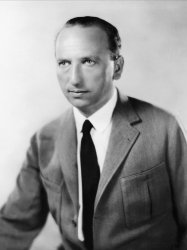
Cab No. 13 (1926)
, 1h35Directed by Michael Curtiz
Genres Drama
Actors Lili Damita, Jack Trevor, Paul Biensfeldt, Walter Rilla, Max Gülstorff, Valeska Stock
Roles Music
Rating57%






The Golden Butterfly (1926)
Directed by Michael Curtiz
Genres Drama
Actors Lili Damita, Nils Asther, Jack Trevor, Curt Bois, Kurt Gerron, Gyula Szöreghy
Roles Music
Rating52%






Madame Wants No Children (1926)
, 1h38Directed by Karl Hartl, Alexander Korda
Origin German
Genres Drama
Actors María Corda, Harry Liedtke, Trude Hesterberg, Camilla von Hollay, Camilla Horn, Marlene Dietrich
Rating58%






The Red Mouse (1926)
Actors Paul Richter, Aud Egede-Nissen, Charles Willy Kayser, Jaro Fürth, Margarete Kupfer, Paul Morgan
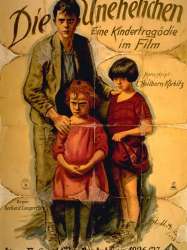
Children of No Importance (1926)
, 1h10Directed by Gerhard Lamprecht
Genres Drama
Actors Bernhard Goetzke, Margarete Kupfer, Hermine Sterler, Jaro Fürth, Elsa Wagner, Paul Bildt
Roles Original Music Composer
Rating67%





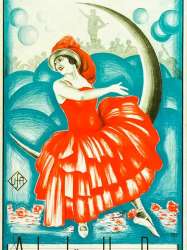
The Blue Danube (1926)
, 1h33Directed by Friedrich Zelnik
Genres Romance
Actors Harry Liedtke, Lya Mara, Julius Falkenstein, Ernő Verebes, Hans Albers, Henry Bender

The Mill at Sanssouci (1926)
Directed by Friedrich Zelnik
Genres Drama
Themes Political films, Films about royalty
Actors Otto Gebühr, Jakob Tiedtke, Anita Dorris, Georg Alexander, Olga Tschechowa, Carl Goetz

The Wife of Forty Years (1925)
Directed by Richard Oswald
Actors Diana Karenne, Vladimir Gajdarov, Sig Arno, Paul Otto
 Connection
Connection

